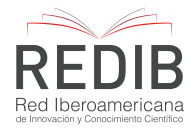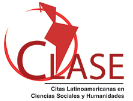
About the Journal
Focus and Scope
The Scientia Iuris Journal, with registration ISSN 2178-8-189, currently classified with Qualis B1, it's associated with the State University of Londrina (UEL / PR, Brazil) Master's Program in Negotiation Law.
The Scientia Iuris Editorial Team are receiving unpublished reviews and scientific articles, with topics related to one of the following research lines of Londrina State University Master's Program in Negotiation Law (1 - Business Relations in Private Law, 2 - Access to Justice: conflict resolution in public and private legal affairs involving individual and transindividual interests, 3- Contemporary State: corporate and international relations) for publication in its upcoming editions.
Peer Review Process
The original articles will be submitted to the appreciation of the members of the Review Board of the journal, according to the specificity of the topic and the reviewer's specialization and title. The works will be sent for evaluation without the identification of the author(s). The selection process of articles for publication involves the evaluation of members of the Editorial Committee and “ad hoc” reviewers, if necessary.
Publication Frequency
Quarterly publication. Editions take place in March, July and November.
Open Access Policy
This journal offers immediate free access to its content, at no cost to the author or the reader, following the principle that making scientific knowledge freely available to the public provides greater global democratization of knowledge.
Indexing
Doaj (Sweden),
Clase (Mexico)
ERIH PLUS
Latindex (Mexico),
Portal de Periódicos CAPES (Brazil),
RVBI Senado Federal (Brazil),
vLex (Spain),
WorldCat (USA),
EZB (Germany),
TULIPS-Linker (Japan),
Scirus (Netherlands),
Aladin (USA),
New Jour (USA),
VUBIS (Belgium),
BASE (Germany),
LivRe (Brazil),
RCAAP (Portugal).
Repositories and Directories
Available in digital library catalogs: HKU Libraries (Hong Kong), Charles University (Czech Republic), Gorky St. Petersburg State University (Russia), Hebrew University of Jerusalem (Israel), Bahria University Library (Pakistan), Miami University Libraries (USA), Yale University (USA), Vietnam Academy of Science and Tecnology (Vietnam), Uniwesytet Wroclawski (Poland), Universidad Nacional Autónoma de México (Mexico), Universidade do Porto (Portugal), University of Tsukuba (Japan), SHERPA RoMEO (England).
Publication Ethics and Publication Malpractice Statement
Scientia Iuris is committed to ensuring ethics in publication and quality of articles.
Conformance to standards of ethical behavior is therefore expected of all parties involved: Authors, Editors and Reviewers.
In particular,
Authors: Authors should present an objective discussion of the significance of research work as well as sufficient detail and references to permit others to replicate the experiments. Fraudulent or knowingly inaccurate statements constitute unethical behavior and are unacceptable. Review articles should also be objective, comprehensive, and portray accurate accounts of the state of the art. The authors should ensure that their work is entirely original and that, if the work and/or words of others have been used, this has been appropriately acknowledged. Plagiarism in all its forms constitutes unethical publishing behavior and is unacceptable. Submitting the same manuscript to more than one journal concurrently constitutes unethical publishing behavior and is unacceptable. Authors should not submit articles describing essentially the same research to more than one journal. The corresponding author should ensure that there is a full consensus of all co-authors in approving the final version of the paper and its submission for publication.
Editors: Editors should evaluate manuscripts exclusively on the basis of their academic merit. An editor must not use unpublished information in the editor's own research without the express written consent of the author. Editors should take reasonable responsive measures when ethical complaints have been presented concerning a submitted manuscript or published paper.
Reviewers: Any manuscripts received for review must be treated as confidential documents. Privileged information or ideas obtained through peer review must be kept confidential and not used for personal advantage. Reviews should be conducted objectively, and observations should be formulated clearly with supporting arguments, so that authors can use them for improving the paper. Any selected referee who feels unqualified to review the research reported in a manuscript or knows that its prompt review will be impossible should notify the editor and excuse himself from the review process. Reviewers should not consider manuscripts in which they have conflicts of interest resulting from competitive, collaborative, or other relationships or connections with any of the authors, companies, or institutions connected to the papers.












